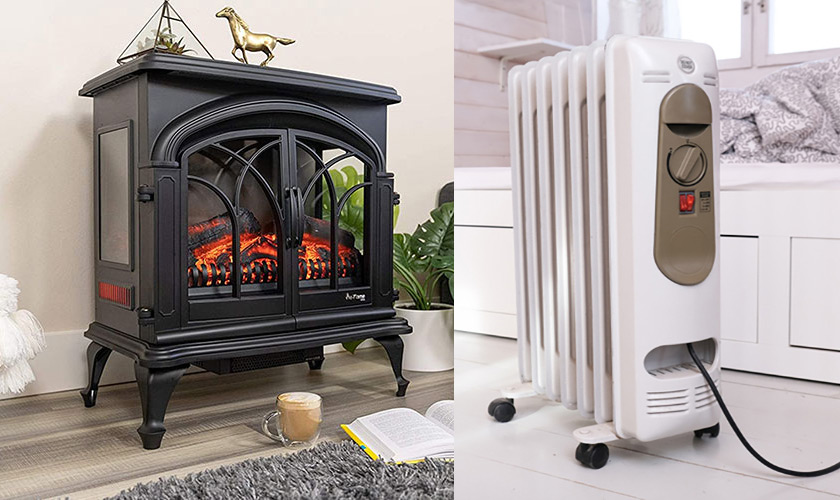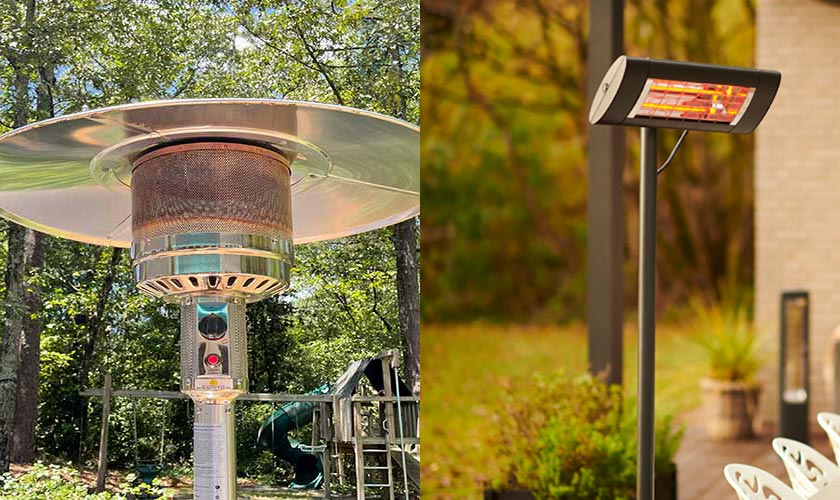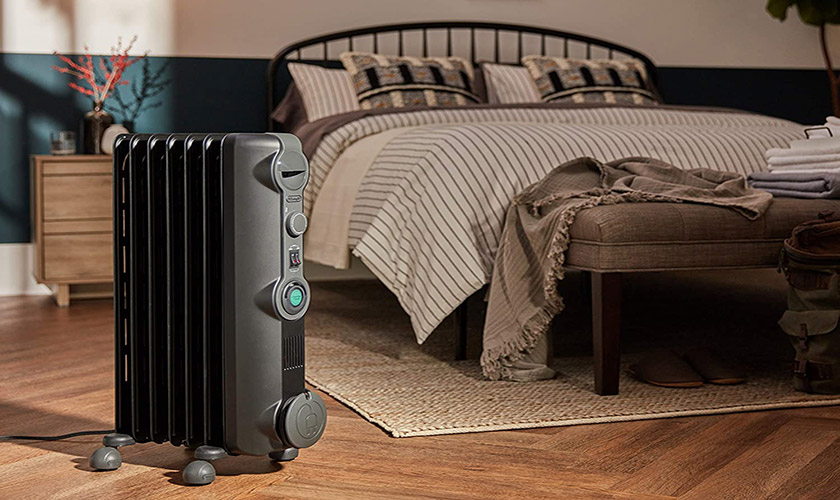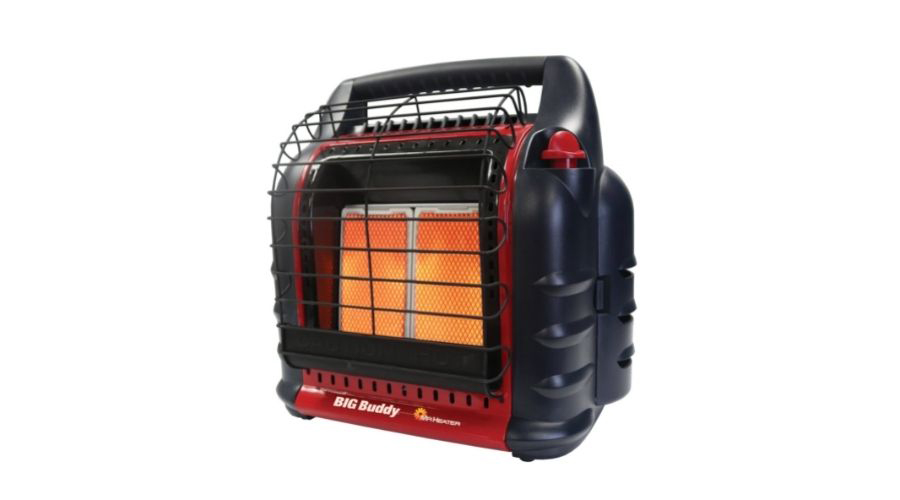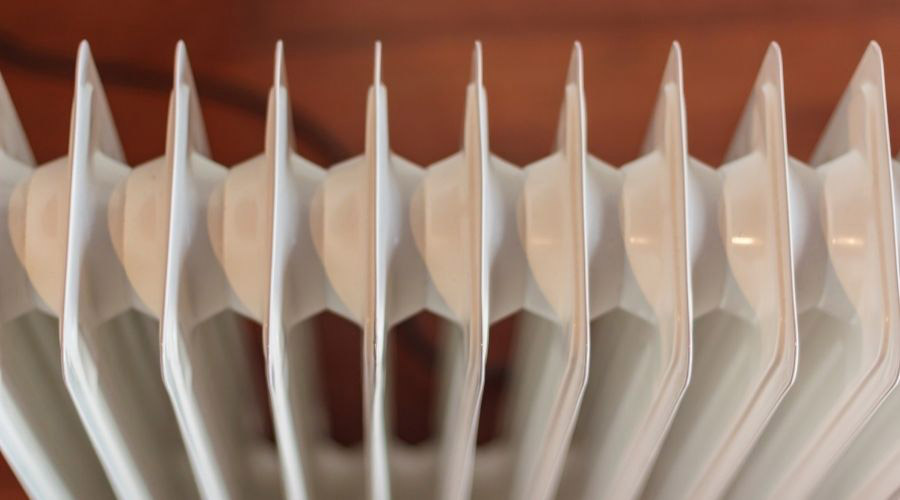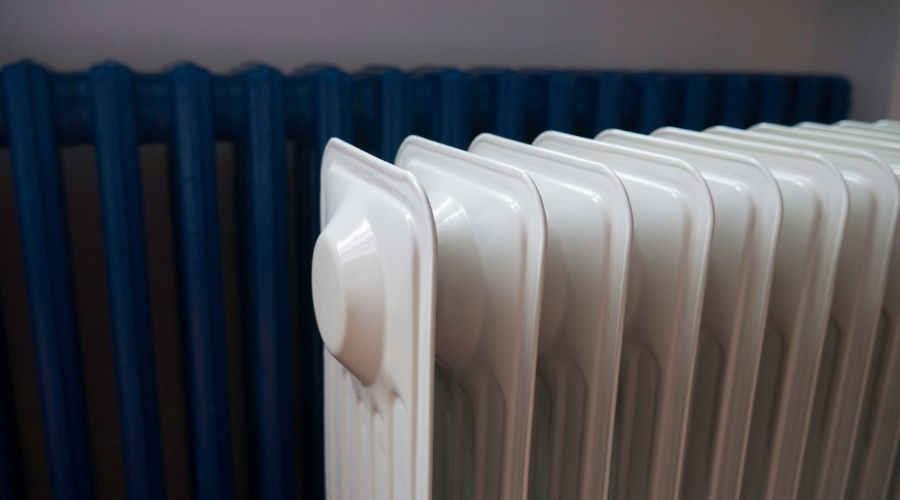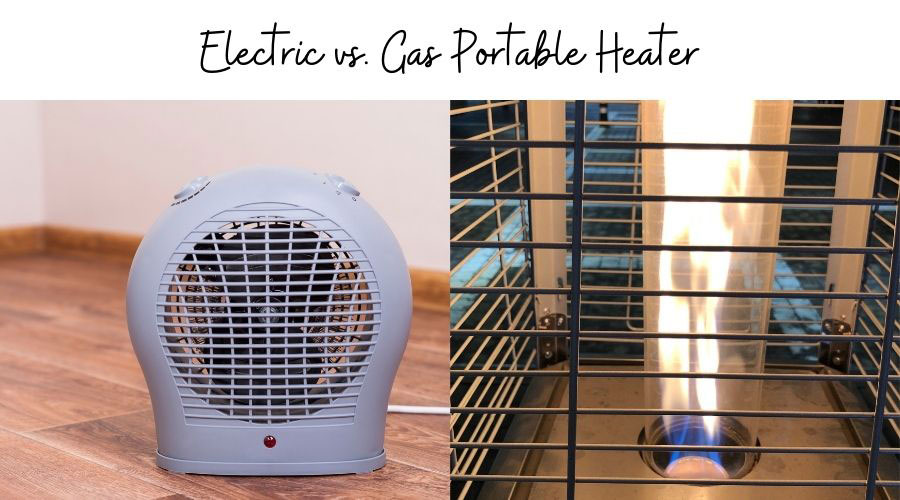
So, you’re looking for a standalone heater? Maybe your boiler broke down, your garage isn’t covered by your home’s heating system, or you’re just looking for intelligent heating investments that will save you money. Whatever the reason, if you want to buy a portable heater, the main discussion will come down to electric and gas heaters.
Both are great if you’re looking to save money, but people are still sometimes unclear over the question: Which is better? Electric or gas heater?
Gas heaters are cheaper to run, so gas heaters are better if you’re looking to save money. However, electric heaters are more environmentally friendly and are much more efficient – they’re also better for indoor use, while gas heaters are better for outdoor use. The choice depends on your needs.
These aren’t the only essential specificities surrounding this – there are many pros and cons for gas and portable electric heaters, and we’ll be tackling that in this article.
Today, we’ll be looking into electric and gas heaters, breaking down their pros and cons, and advising you what choice you should make if you want to enrich your home with a bit of warmth.
We’ll learn how each type of heater works, their differences, and which one you should get for your home. Let’s get started.
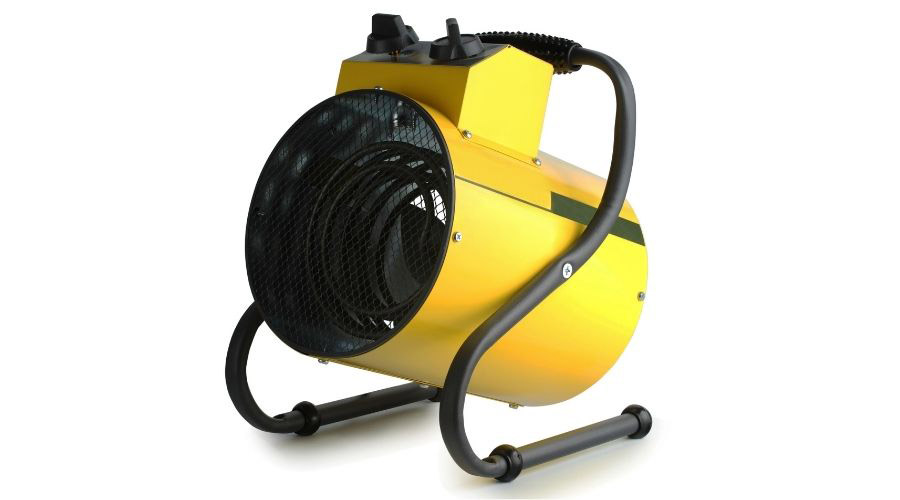
How Do Electric Portable Heaters Work?
Portable electric heaters are a favorite and are usually more popular than portable gas heaters. One of the reasons for that is that they’re so simple to use!
There’s only one step: plug your heater in. That’s it – after that, your heater will heat up quickly, and when you decide you don’t need it anymore, it will cool down just as quickly. Electric heaters are also very cheap, which’s appreciated when it comes to a device that will cost a fair amount as you use it.
There are different types of electric heaters, and here’s the rundown.
Fan Heaters
Fan heaters are very light (the lightest of the bunch) and are the most portable heaters. They’re fast-heating and great if you need to target a specific area. However, the massive drawback they have is that you need to put up with the fan noise.
Convection Heaters
Convection heaters, also known as convectors, work by warming the air around them, forming a cycle of hot and cold air. They continue to do that until the room is heated evenly. They take a little longer than other heaters to do this, but the result is a perfectly balanced temperature in the room.
Halogen Heaters
Halogen heaters are another popular type of electric heater. They heat up quickly, and they’re the cheapest ones to run among the electric heaters, often chosen for their low cost.
Oil-filled Heaters
Lastly, we have oil-filled radiators. These heaters are the most efficient since oil is a great preserver of heat. They were also very cheap.
Fixed Electric Heaters
Fixed electric heaters are another option, but you can attach a fan heater or a convector to your wall and achieve the same effect.
All electric heaters have a 100% efficiency rating since they turn all the energy they use into heat, so not a cent you pay for them goes unspent.
Heaters with thermostat controls are even more efficient since you can set them to turn off once the room has reached the desired temperature.
If your heater doesn’t have a thermostat, you can quickly achieve this effect if you buy and plug in a thermostat with a timer and connect it to your heater.
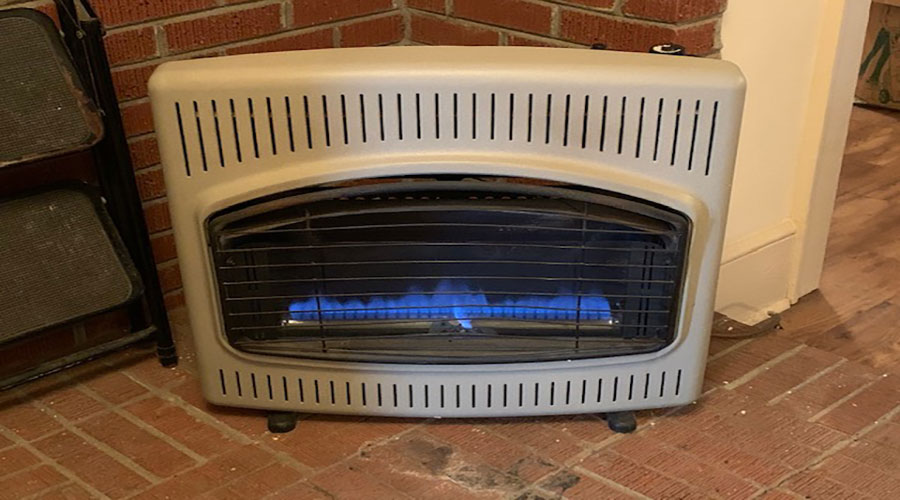
How Do Gas Portable Heaters Work?
Portable gas heaters use the radiant heating method to provide you with warmth. They combine gas and air to create a flame, which offers warmth. This warmth then spreads through the space where the heater is at.
Many homeowners debate over the whole portable vs. fixed heater topic. But it’s simple: portable heaters are the way to go if you need to heat smaller areas that are somewhat isolated from the central part of your home (like your shed or your garage).
Portable gas heaters use fans to spread the heat instead of vents and are usually cheaper. They do lack ventilation, though. The only meaningful difference between mobile and fixed heaters is that fixed heaters mount to the wall.
There are only two types of portable gas heaters: radiant gas heaters and portable gas stoves.
Radiant Heaters
Radiant gas heaters are ideal for heating a specific spot (say, a shed or the area around your table on the porch). Despite being pleasing to the eye, portable gas heaters are more difficult to move around.
Gas Heaters
Gas heaters are less efficient than electric heaters because they leak heat and fumes. Also, since electricity is renewable and fossil fuels aren’t – they are less eco-friendly.
Advantages & Disadvantages Of Electric Heaters
Despite their differences in type, most electric heaters share the same pros and cons. Let’s start with the pros.
| PROS | CONS |
|---|---|
| Very portable | Costly on your electric bill |
| Convenience to use | It can create fire risks if not used properly |
| Extremely affordable upfront | It can be slow to heat the room up |
| You can use them indoors | Creates allergens |
| It contains lots of safety features | |
| Extremely durable | |
| Easy to maintain | |
| It comes in different shapes & sizes |
PROS
- Portability: All electric heaters are very portable. Unlike portable gas heaters, they don’t require any gas venting, so you can easily move them from room to room (as long as you have electricity).
You can quickly bring the heat to where you need it most. They’re ideal for people living in temporary housing (dorm rooms, apartments, even camping trips if you have the means to power the heater).
- The convenience of use: There’s no installation to worry about; all you have to do is plug it in and choose your settings. This convenience makes portable electric heaters great for everyone.
- Affordability: These heaters are much less complex and simpler to put together. Consequently, they’re distinguishably cheaper than gas heaters. If you need to buy one, you won’t be breaking the bank even as an emergency heater.
- Indoor use: Electric heaters are great for indoor use. More importantly, they’re safe. We’ll get to that later with gas heaters, but they’re not as safe because of their fumes and the possibility of a malfunction, which can cause carbon monoxide leaks.
You don’t have to take this risk if you decide to buy an electric heater. They also don’t have an open flame. However, they shouldn’t be exposed to natural elements, especially not the rain, since they could short circuit.
- Safety features: Since they’re designed to be used mostly (we’d like to say exclusively, but there must have been people who have used them outdoors), they usually come with robust safety features. Most electric heaters will turn themselves off if they overheat or fall over, which is excellent for stopping fires.
- Durability: Most electric heaters are made to stick around. They can last between twenty and thirty years if you properly care for them. Gas furnaces usually don’t last this long.
- Maintenance: It’s very easy to maintain an electric heater. The instructions for this will be in your user manual, and you’ll only need the help of an expert if something breaks down.
- Size: Size-wise, electric heaters come in all shapes and sizes, which is great because you can fit them anywhere you need them. There are also more designs for electric heaters than gas heaters, so you’ll find more sleek and modern heaters in the electric section.
CONS
- Operating cost: It’s obvious that electricity costs more than gas, so, in the long run – it will cost you more to run an electric heater than a gas heater.
However, you can take care of this and minimize your cost by looking for models rated by Energy Star and choosing models with a built-in thermostat and timer, which you can set off once they reach a specific temperature or time.
- Fire risk: Since electricity draws a lot of power, your home is at risk of fire if your electrical system can’t handle the load. According to the Department of Energy, space heaters cause about 25,000 home fires each year.
The only way to minimize the risk is never to use your heater with an extension cord or leave it when you leave the room. Also, try to keep your heater several feet away from flammable items.
There’s also the risk of the heater tipping over, and since some heaters don’t have detectors that will automatically shut them down, this could lead to a fire (for example, if it falls on your carpet or drapes).
- Slower warm-up time: Gas heaters warm up instantaneously, while electric heaters take some time to start operating at full capacity. The heating elements in the heater take more time to warm up, which means you’ll be wasting power until you start feeling the heat. Larger heaters take longer to warm up.
- Allergies: Electric fans that spread the heat can often distribute dust particles, pollen, pet hairs, and other particles. This can be harmful to people who have a problem with allergies. It should be noted that there are heaters out there that are certified as allergy-free.
Advantages & Disadvantages Of Gas Heaters
Like portable electric heaters, most gas heaters operate on the same system, meaning they have the same pros and cons. Let’s start with the advantages and move on to the disadvantages later.
| PROS | CONS |
|---|---|
| It saves money on energy | It can be quite a bit of an investment upfront |
| Quickly heats an area up | Safety can be an issue due to the gas creating carbon monoxide |
| Well-suited for outdoor usage | Not all gas heaters can be used indoors |
| Excellent for larger rooms | It can be pretty bulky & heavy |
| Recommended for people who have allergies |
PROS
- Energy savings: Gas heaters have low operating costs. This is a big plus compared to electric heaters’ high operating costs.
These systems are often praised for their efficiency, and even though energy prices may fluctuate over time, gas is always cheaper than electricity, and you need less of it to produce the same amount of heat. You’ll save a lot of money if you continue to use this system over time.
- Environmentally responsible: Since you’ll be using less fuel to stay warm (less than you would with electricity for the same amount of heat), you’ll be lowering your carbon footprint.
Since most electricity comes from non-sustainable sources, your electricity won’t come from clean energy sources unless you have installed solar panels.
Gas heaters work during power outages – These systems don’t need electricity, so you won’t have to worry about the heat if a power outage occurs.
- Quick heat-up: These heaters get up and running faster than electric ones. They heat up as soon as you turn them on, unlike electric heaters, which take a while.
- Outdoor use: As we’ve already mentioned, gas heaters are well suited for the outdoors. Patios, gazebos, terraces, etc. These heaters don’t need as much protection as electric ones do, and they work in all types of weather (aside from extreme weather). You can use them on your camping trips, as well.
- Room size: Gas heaters are excellent for large rooms, like your living room.
- Allergies: Gas heaters are recommended for people with asthma or dust allergies, especially flued gas heaters. If you’re not using a flued gas heater, try to keep your room as ventilated as possible.
CONS
- Upfront cost: Although they will save you money in the long run, gas heaters are more expensive. They will always cost more than a comparable electric model.
The equipment is more complicated since it requires a combustion system, which directly affects the installation cost, as your heating system needs to be connected to a gas line. Installation needs to be done by a professional, which can cost anything from $1200 to $5000.
- Safety concerns: With gas heaters, there can be carbon monoxide concerns. Gas heaters can start to give off carbon monoxide if they malfunction.
The gas improperly vented can cause carbon monoxide poisoning (potentially lethal), making annual service extremely necessary. Flued systems will eliminate the carbon monoxide through the pipes, but non-flued systems require good ventilation.
- Indoor use: Unfortunately, not all gas heaters can be used indoors. Unvented gas heaters should never be used indoors for the risk of carbon monoxide buildup (not to mention the partially open flame in your living area).
- Size: Gas heaters are usually quite bulky in size and are heavy. They’re not easy to move around despite being portable.
They also take up more room than electric heaters. If you’re looking for something modern that will fit your living area, you will be disappointed with gas heaters.
Should You Choose A Gas Or An Electric Portable Heater?
And now, for the big question after the whole rundown. Which kind of portable heater should you choose? There’s no right or wrong answer here, in fact, so we’ll list the reasons for which you should choose an electric heater and the reasons behind choosing a gas heater. It all depends on your needs.
| REASONS ELECTRIC HEATERS ARE BEST | REASONS GAS HEATERS ARE BEST |
|---|---|
| You want a heater that you can move from room to room easily. | Saves money on energy bills monthly. Despite their initial high cost, gas is much cheaper than electricity. |
| You have a tight budget. Electric heaters are roughly 8-9x cheaper than gas heaters. | You want to reduce your carbon footprint. You’ll use less gas than electricity for the same amount of heat. |
| Electricity bills are included in your rent. | You already have established access to gas or propane. |
| You’re not allowed to make structural changes to your living area. | You want the option of outdoor heating, as well as indoor heating. |
| You need to have good safety features because of children & pets | You don’t have a problem with installing an additional ventilation system. |
| You want a heater you can install where children and animals won’t touch it. |
Conclusion
Gas and electric heaters are both excellent choices, but it depends entirely on your needs. Electric heaters are the way to go if you want to heat your bedroom up before going to sleep.
However, when you wish to find something more suitable for the outdoor area or a place with a lot of ventilation, portable gas heaters are an excellent option.
We are confident that you know which option you want, and we wish you the best of luck finding a solution for your needs!


